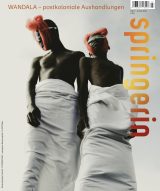(b.1978) is an architect, researcher, critic, and writer teaching at the Architectural Association, London. He is the editor of Did Someone Say Participate? An Atlas of Spatial Practice (MIT Press/Revolver 2006, with Basar), author of Spaces of Uncertainty (Müller+Busmann, 2002, with Cupers) and currently acts as a spatial consultant to the European Kunsthalle, Cologne. Markus Miessen frequently contributes to international journals such as Contemporary, Domus, Tank and Bidoun and is editor for international projects at Build, a German architecture and urbanism periodical. He studied at Glasgow School of Art, graduated from The Architectural Association, did post-graduate research at The London Consortium and is currently a Doctoral candidate investigating conflict and non-consensus based forms of participation as a form of alternative spatial practice at the newly set up Centre for Research Architecture at Goldsmiths College, University of London.
